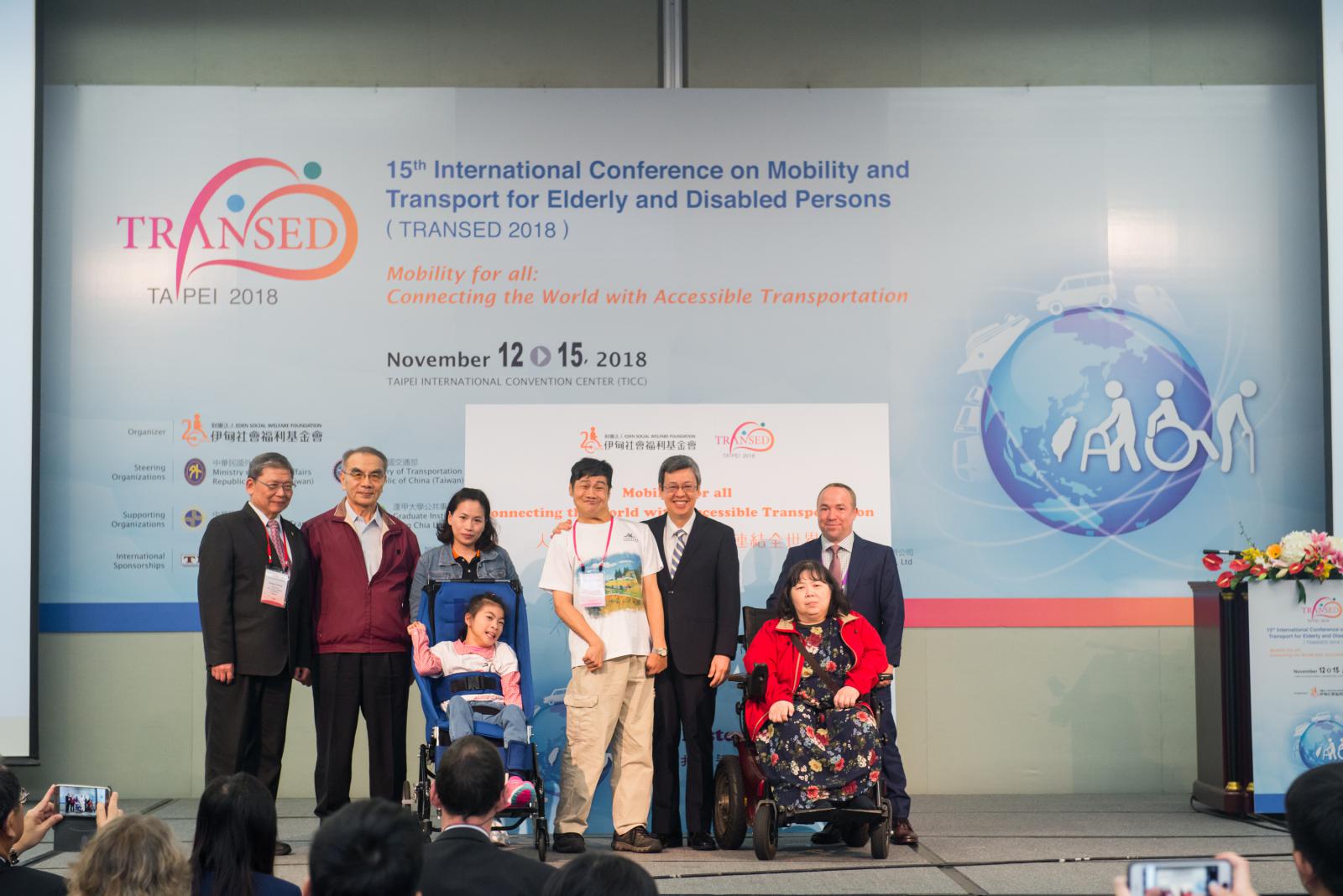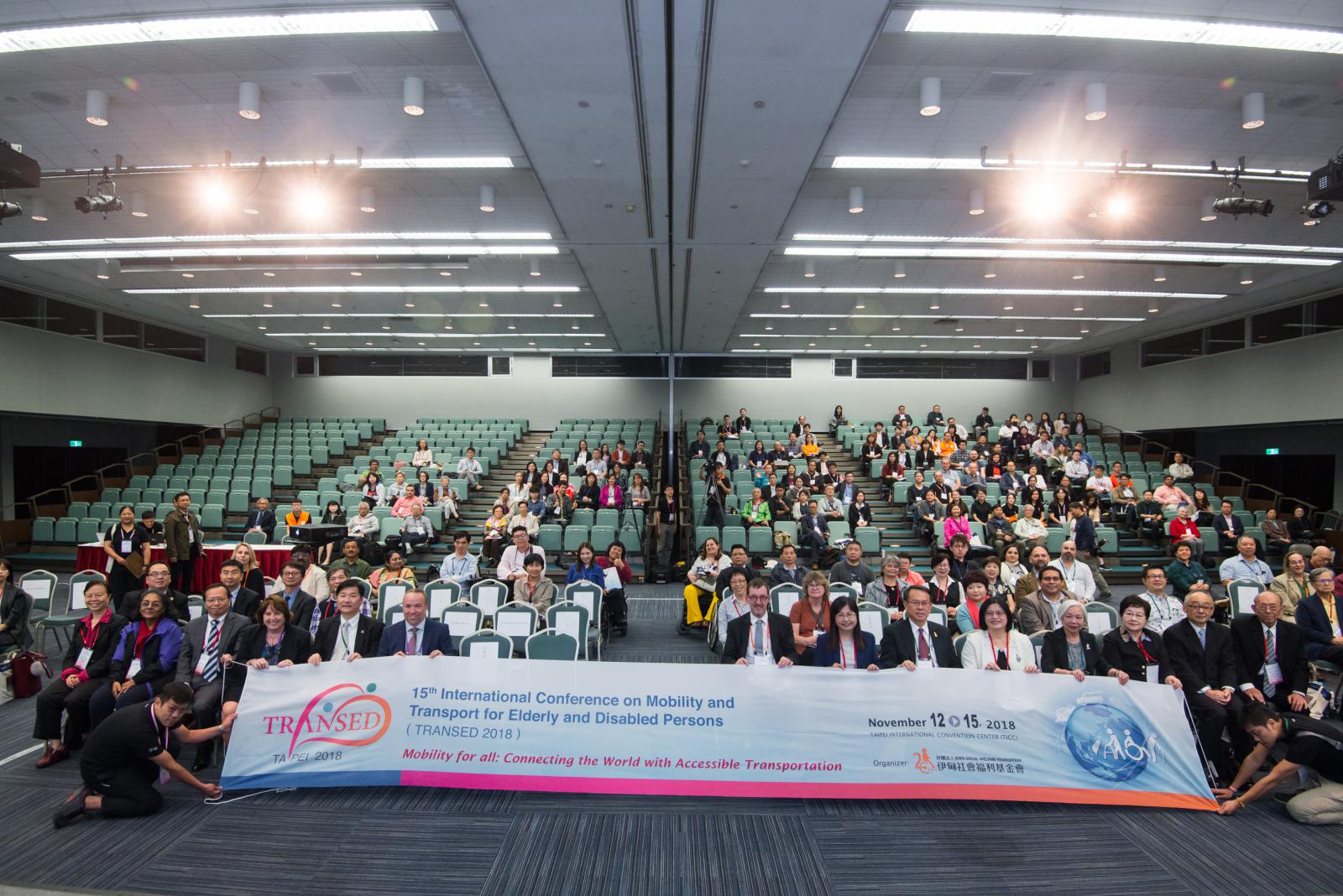
Everyone Can Travel Freely: Accessible Transportation Connects the World—TRANSED Conference Debuts in Taiwan
According to the Ministry of Transportation and Communications, the market share of public transportation in Taiwan reached 18.1% in 2016, the highest in eight years. This indicates that as transportation infrastructure becomes more widespread, people are increasingly using public transportation. However, the latest survey by the Ministry of Health and Welfare on the living conditions and needs of people with disabilities found that nearly 60% of people with disabilities had not used public transportation in the past year. This percentage is even higher among individuals with dementia, physical disabilities, and multiple disabilities, with over 80% of the dementia group being excluded. This shows that although public transportation infrastructure is improving, it still does not fully consider the needs of disadvantaged groups. There is still room for improvement in creating accessible transportation and a friendly environment.
The Eden Social Welfare Foundation, which has long been concerned with accessibility issues, has been preparing for the 15th International Conference on Mobility and Transport for Elderly and Disabled Persons (TRANSED) since obtaining the hosting rights three years ago. Today (13th), the conference officially kicked off at the Taipei International Convention Center. This year's theme is "Everyone Can Travel Freely: Accessible Transportation Connects the World." The aim is to enhance Taiwan's environmental friendliness through exchanges among international representatives from industry, government, academia, and research. Vice President Chen Chien-jen was invited to share Taiwan's achievements and future developments in accessible transportation, hoping to elevate Taiwan's accessibility environment to a higher level. Wu Shu-fen, Director of Eden International Development, stated that with the arrival of an aging society, working on equal rights to go out will be a task for all citizens.
Senior wheelchair user Zhang Mei-ling pointed out that transportation has always been the most troublesome issue when traveling. For example, when traveling by train, an average person can cross platforms using stairs and exit the station in a few minutes. However, wheelchair users or people with limited mobility can only rely on elevators or ramps, taking several times longer to exit the station. Additionally, moving from point to point is a significant challenge. From the train station to tourist spots, average people can choose to drive, walk, or take tour buses. However, people with disabilities have fewer options and must spend extra time and money on arrangements, which is quite inconvenient.
Zhang Mei-ling said that while she could walk slowly with crutches when she was younger, her dependence on a wheelchair has only increased with age and physical deterioration. The need for a friendly environment is also growing. Similarly, cerebral palsy artist Song Wu-xiong, who seeks inspiration for his paintings through photography, faces the same challenges. His congenital limb atrophy and degenerative arthritis make every outing a challenge. If the environment could provide sufficient support, the obstacles to his creativity would be greatly reduced.
On the other hand, the need for the elderly to go out is also urgent. Seventy-five-year-old Grandpa Xie Yang-jie said that he can no longer drive long distances due to his age but still wants to travel with his mobility-impaired wife. He often worries about whether tourist spots have sufficient accessible facilities and whether the itinerary considers their decreased mobility and stamina. However, a recent one-day silver-hair tour to Taichung organized by Eden, planned by social workers, was much more relaxed, and going out for a trip was no longer the start of worries.
Wu Shu-fen emphasized that although the needs of the elderly and people with disabilities for an accessible transportation environment are different, the right to travel should not differ. Creating a friendly environment requires not only government-led promotion of accessible infrastructure but also enhanced awareness and understanding among the general public, practicing it sincerely. This has been Eden's long-term focus of Eden.

Vice President Chen Chien-jen, along with representatives of people with disabilities, children, and the elderly, jointly signed the Friendly Transportation Declaration.

The Eden Social Welfare Foundation hosted the 2018 TRANSED Conference on Accessible and Friendly Transportation, with enthusiastic participation from scholars and industry professionals from various countries.
【About TRANSED】
The International Conference on Mobility, Accessibility & Demand Response Transportation (TRANSED) was established by the Transportation Research Board (TRB) of the United States in 1978. It is held every three years in different countries. Taipei is the fourth city in Asia to host this conference, following Hamamatsu in Japan, Hong Kong, and New Delhi in India. The Eden Social Welfare Foundation is honored to have obtained the hosting rights for the 15th TRANSED Conference in 2018. The theme for this conference is "Mobility for All: Connecting the World with Accessible Transportation." This year, the conference will see participation from 163 professionals and scholars from 40 countries, sharing and discussing 97 related papers.
The conference aligns with Taiwan's promotion of the 10-year Long-term Care 2.0 plan, which focuses on enhancing care services, transportation, and home accessibility for the elderly and people with disabilities. A designated exhibition area has been planned to showcase the achievements of various local governments in promoting accessible transportation environments. Additionally, academic institutions, social enterprises, and non-governmental organizations will display the latest accessible transportation tools, smart assistive technologies, traditional assistive devices, and related products during the conference period.
Source: Eden Social Welfare Foundation